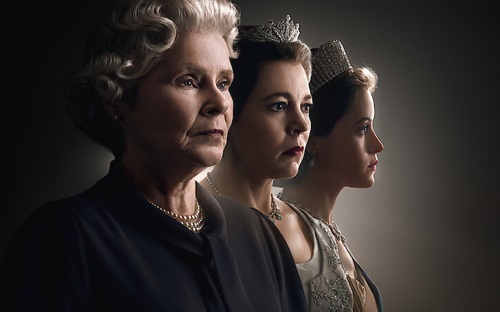
True crime TV series have carved out a dominant space in contemporary entertainment, captivating audiences across the globe. From gripping narratives to chilling reenactments, this genre consistently ranks among the most-watched content on streaming platforms. But what exactly makes true crime so irresistible?
The Allure of Mystery
At the heart of every true crime series is a mystery waiting to be unraveled. Humans are naturally curious creatures, and mysteries tap into our deep-seated desire to seek answers and restore order. The suspense of "whodunit," combined with the gradual unveiling of clues, keeps viewers on the edge of their seats. Whether it’s piecing together forensic evidence or understanding the motives behind heinous acts, the satisfaction of solving a puzzle—even vicariously—is profoundly rewarding.
Real-Life Stakes
Unlike fictional dramas, true crime stories come with the weight of reality. The knowledge that these events actually happened adds an extra layer of intensity and emotional engagement. The victims, perpetrators, and investigators are real people, and this authenticity fosters a sense of connection and empathy. Viewers often feel a personal stake in the story, imagining how they might react in similar situations or empathizing with the pain and resilience of those involved.
Psychological Thrills
True crime taps into our primal instincts. Evolutionarily, humans have been wired to stay alert to threats. Stories about danger, deception, and survival trigger our fight-or-flight responses in a safe environment, providing an adrenaline rush without any real risk. This heightened state of arousal can be both thrilling and addictive.
True crime offers a unique opportunity to delve into the complexities of human behavior and the shadowy aspects of society while maintaining a sense of security and detachment. The genre allows viewers to confront fears and anxieties about violence, betrayal, and morality in a controlled setting. By observing others’ misfortunes and mistakes, viewers may also feel a sense of reassurance or validation about their own lives and choices.
Fascination with the Criminal Mind
One of the most compelling aspects of true crime is the opportunity to delve into the psyche of criminals. Understanding why someone commits a crime—especially one as shocking as murder—is endlessly fascinating. True crime series often feature interviews with psychologists, criminologists, and even the perpetrators themselves, offering insights into the complexities of human behavior. This exploration of morality, free will, and the blurred lines between right and wrong challenges viewers to grapple with profound ethical questions.
Masterful Storytelling
True crime series are meticulously crafted to maximize engagement. Many shows employ cliffhangers, nonlinear timelines, and dramatic reenactments to keep viewers hooked. The use of expert commentary, archival footage, and immersive sound design adds depth and authenticity to the narrative. Moreover, the episodic format encourages binge-watching, as each episode builds on the last, making it difficult to stop.
Documentaries like Making a Murderer and The Jinx exemplify this storytelling prowess. These series not only recount events but also invite viewers to become amateur sleuths, analyzing evidence and forming their own conclusions. This interactive element enhances the viewing experience, transforming passive observation into active engagement.
A Reflection of Societal Concerns
True crime often serves as a mirror to societal fears and issues. Stories of corruption, systemic failure, and social injustice resonate deeply with audiences, shedding light on broader cultural and institutional problems. For example, series like When They See Us highlight racial profiling and judicial bias, prompting important conversations about inequality and reform.
Moreover, true crime can be seen as a form of modern cautionary tale. These narratives often emphasize the consequences of poor decisions, the fragility of trust, and the randomness of fate. By understanding the circumstances that lead to crimes, viewers may feel better equipped to navigate their own lives and avoid similar pitfalls.
The Role of Community
The communal aspect of true crime fandom also contributes to its popularity. Online forums, social media groups, and podcasts dedicated to discussing true crime series allow fans to connect, share theories, and debate interpretations. This sense of community fosters a deeper engagement with the genre, transforming solitary viewing into a shared cultural experience.
Escaping the Mundane
For many viewers, true crime provides a form of escapism. The stark contrast between the drama of criminal cases and the routine of everyday life makes these stories particularly captivating. While the content can be dark and unsettling, it also offers a break from monotony, immersing viewers in narratives that are anything but ordinary.
Ethical Considerations
While the popularity of true crime is undeniable, it’s important to address the ethical dilemmas associated with the genre. Critics argue that sensationalizing real-life tragedies can exploit victims and their families. To balance entertainment with sensitivity, creators must approach their subjects with care and integrity, ensuring that the stories they tell are respectful and responsibly handled.
The Future of True Crime
As the genre continues to evolve, it’s likely to become even more immersive and innovative. Interactive storytelling, virtual reality experiences, and AI-generated reconstructions could redefine how we engage with true crime. However, the core appeal—the thrill of unraveling mysteries, the exploration of human nature, and the connection to real-life stakes—will undoubtedly remain central to its success.





